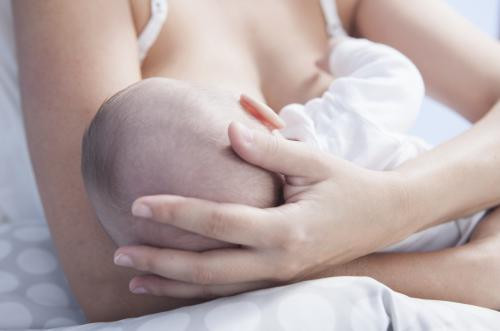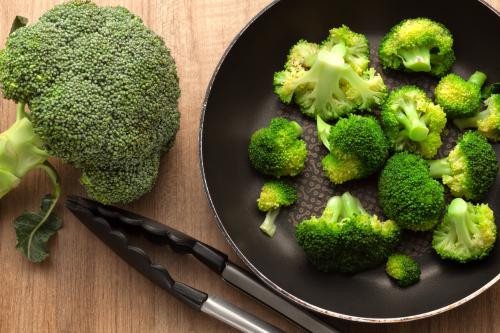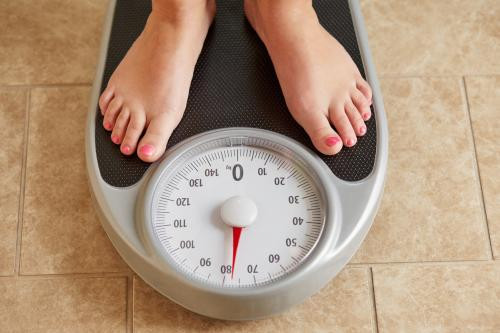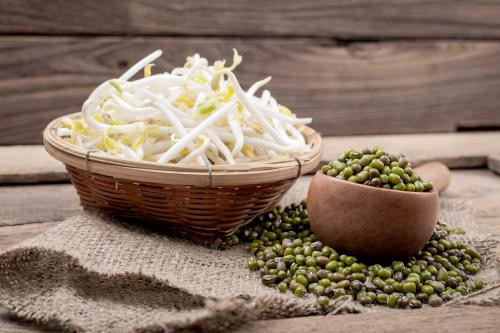15 tips to help prevent breast cancer
There are ways to help prevent disease such as a healthy diet, exercise...
 |
| Breastfeeding helps mothers reduce the risk of breast cancer. |
Breast cancer is the most common cancer and the leading cause of death in women in many industrialized countries. This is a very complex disease that has been studied for many years about its causes and treatment. However, it is necessary to detect breast cancer early through screening in normal women. In France, 1 in 10 women have breast cancer, but fortunately there are ways to help prevent the disease such as a healthy diet, exercise... Here are 15 tips to help prevent breast cancer:
 |
1. Eat lots of green vegetables
Researchers in Sweden conducted a survey of 5,842 women and found that consuming a lot of green vegetables (green cabbage, broccoli, Brussels sprouts, etc.) reduced the risk of breast cancer by 20-40% because vegetables are rich in glucosinolates. A 2009 study in the US showed that sulforaphane (a family of glucosinolates) can inhibit cell proliferation and prevent tumor formation, even breast tumors. Another study on experimental animals showed that Indole-3-carbinol (a form of glucosinolate) has the ability to "self-destruct" breast tumors.
2. Avoid bleach and pesticides
Detergents, pesticides, paints... often contain PCBs, organochlorines, organic solvents that disrupt endocrine activity in the breast due to increased estrogen synthesis. Excessive activity of hormones will stimulate cell division. According to Professor Henri Joyeux - Cancer specialist and Dr. Bérengère Arnal-Schnébelen - Obstetrics and Gynecology specialist, the risk of breast cancer increases 1.4-2.4 times after about 15 years of exposure to carcinogenic organic solvents. In addition, exposure to asbestos, fiberglass, the risk of breast cancer increases 1.3 times during pre-menopause.
3. Reduce some fats
“Industrial” foods such as cakes, pizzas… contain a lot of “bad” fats called “trans” or “hydrogéneés” which increase the risk of breast cancer. A study by Inserm and the Gustave Roussy Institute in 2008 showed that the incidence of breast cancer almost doubled in women with high levels of “trans” fatty acids in their blood. Therefore, you should limit the amount of saturated fatty acids such as animal fat, bacon, butter…
4. Consume plenty of fiber
A study in the US conducted a survey of 83,234 women and found that premenopausal women who consumed at least 5 types of fruits and vegetables every day had a 23% lower risk of breast cancer. This shows that fruits and vegetables are rich in fiber, minerals, folic acid, and lycopene. Foods rich in fiber such as plums, dates, lentils, etc., foods rich in folic acid such as watercress, spinach, asparagus, etc., and foods rich in lycopene such as tomatoes, watermelon, and pink grapefruit, etc.

5. Weight monitoring
During menopause, if you gain about 10% of your body weight, your risk of breast cancer increases by 30-50%. High levels of sugar and fat in the breast will form a "negative endocrine gland" and from there produce cancer-causing hormones. Research in the US shows that after 10 years, the survival rate of obese breast cancer patients is 40%, while that of non-obese patients is 54%.
6. Note on hormone treatment during menopause
Hormone replacement therapy during menopause increases the risk of breast cancer because the “extra” estrogen stimulates breast cell division. A 2009 US study found that the risk of breast cancer significantly decreased when hormone therapy was stopped.
 |
| Bean sprouts are rich in phyto-estrogens. |
7. Increase your intake of foods rich in phyto-oestrogens!
Soybeans, flaxseeds… are foods rich in phyto-oestrogens. They help reduce estrogen levels when they are high, preventing excessive stimulation of breast development, thereby reducing the risk of breast cancer. A study in the US showed that women who consume a lot of soy have a 23-47% lower risk of breast cancer. Phyto-oestrogens should not be used in women who have had breast cancer or have a family member with breast cancer; it is best to consult a doctor.
8. Note some medications
According to Professor Hervé Gautier, an oncologist, the use of certain medications (antidepressants, diuretics) increases the risk of breast cancer, but this should be considered carefully because it may be combined with other risk factors that cause the growth of abnormal cells, according to Professor Henri Joyeux.
9. Should you be wary of deodorants?
Aluminum and parabens are two chemicals found in most deodorants. These chemicals disrupt hormone activity and increase the risk of breast cancer (especially after shaving or waxing). However, there is no scientific evidence to show a link between deodorants and breast cancer, so it is best to be careful!
10. Be careful with alcoholic beverages
According to Professor Hervé Gautier, consuming a lot of alcoholic beverages increases the risk of breast cancer because high alcohol intake will increase estrogen production, facilitating cell division. In addition, alcohol when entering the body will be converted into acetaldehyde, known as a carcinogen.
10 g of alcohol is equivalent to 10 cl of 12° wine, 25 cl of 5° beer, 3 cl of 40° whisky, 3 cl of 45° pastis, 10 cl of 12° champagne.
11. Quit smoking
According to Professor Henri Joyeux and Dr. Bérengère Arnal-Schnébelen, women who smoke increase their risk of breast cancer by 30%, especially if they smoke before the age of 20 and at least 20 cigarettes a day. According to Professor Hervé Gautier, the harmful effects of tobacco on breast cancer are more obvious when combined with alcohol. According to a 2008 study in the US, Nicotine promotes breast tumor growth and metastasis.
12. Exercise
According to Professor Hervé Gautier, sedentary people have a higher risk of breast cancer, the reason is that exercise helps reduce estrogen and fat levels. This reduces the risk of breast cancer by 20-40% compared to inactive people. Exercising at least 30 minutes a day, 5 days a week will reduce the risk of breast cancer by 25%.
13. Regular health check-ups
According to the French Cancer Prevention Center, 20 years ago, the average survival rate for women with breast cancer was less than 50%, but now it is 90% if detected early. It is best to have a breast ultrasound in women aged 50-74, every 2 years.
14. Breastfeeding
According to the American Institute for Cancer Research and the World Health Organization (WHO), breastfeeding for at least the first 6 months of life not only helps children develop comprehensively and healthily, but is also one of the effective measures to reduce the risk of breast cancer, because breastfeeding helps "evacuate" carcinogens in breast cells.
15. You should have your first child before the age of 30.
Having your first child before the age of 30 reduces your risk of breast cancer. According to Professor Henri Joyeux, an early pregnancy significantly increases the amount of oestriol - a hormone that reduces the risk of breast cancer by 50-70% later, and each birth also reduces the risk of breast cancer because after giving birth and breastfeeding, the mammary glands are less sensitive to carcinogens.
